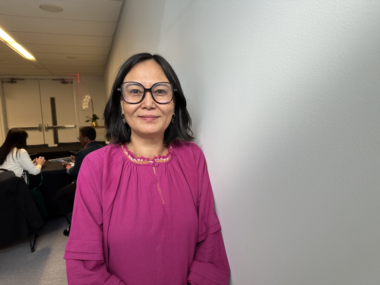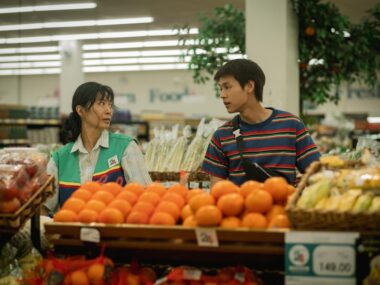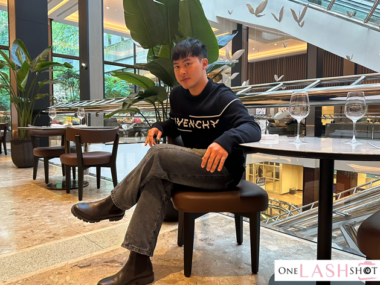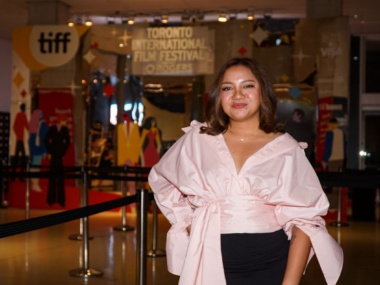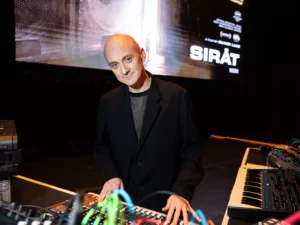I remember watching the trailer of Burn the House Down when it first released back in 2023. It was everywhere, probably the most talked-about limited series at the time, so it kept popping up on my home screen non-stop. Purely out of curiosity, I watched it. That was the first time I saw Mei Nagano.
Mei Nagano, a prodigious talent in Japan’s entertainment realm, has swiftly ascended to prominence as both an actress and model, renowned for her exceptional versatility and magnetic presence. She made her debut in the 2009 action-adventure film Hard Revenge Milly: Bloody Battle. Over the years, she has built a diverse and impressive portfolio in both film and television. Nagano’s standout roles include My Love Story!, Daytime Shooting Star, and the 98th NHK asadora Hanbun, Aoi, where she garnered critical acclaim for her performance. She landed the role after a fiercely competitive audition, beating out 2,366 other women. Her exceptional portrayal earned her widespread recognition, culminating in the Best Actress award at the 98th Japan Television Drama Academy Awards.
In 2019, Nagano starred alongside Masaki Suda in the drama Mr. Hiiragi’s Homeroom, where she won Best Supporting Actress at the 100th Japan Television Drama Academy Awards for her role. Her career reached new heights with her critically lauded performance in the 2021 film And So the Baton Is Passed, for which she was named Best Actress at the 64th Blue Ribbon Awards.
In 2025, Akiko Higashimura’s autobiographical manga, Kakukaku Shikajika was adapted into a feature film starring Mei Nagano as Akiko, and veteran actor Yo Oizumi as her teacher and mentor, Kenzo Hidaka. The story follows Akiko Hayashi, a high schooler dreaming of becoming a manga artist but lacking discipline and skill. She decides to attend an art class led by the strict, unconventional Kenzo Hidaka whose intense focus on classical art challenges Akiko to face her insecurities and dedication to her craft. The film made its North American premiere at the Fantasia International Film Festival where it competed for the prestigious Cheval Noir.
One Lash Shot had the privilege of sitting down with actress Mei Nagano to discuss bringing to life a world shaped by the eyes of a manga artist—and the distinct role she played in turning that vision from the page into a captivating on-screen reality.
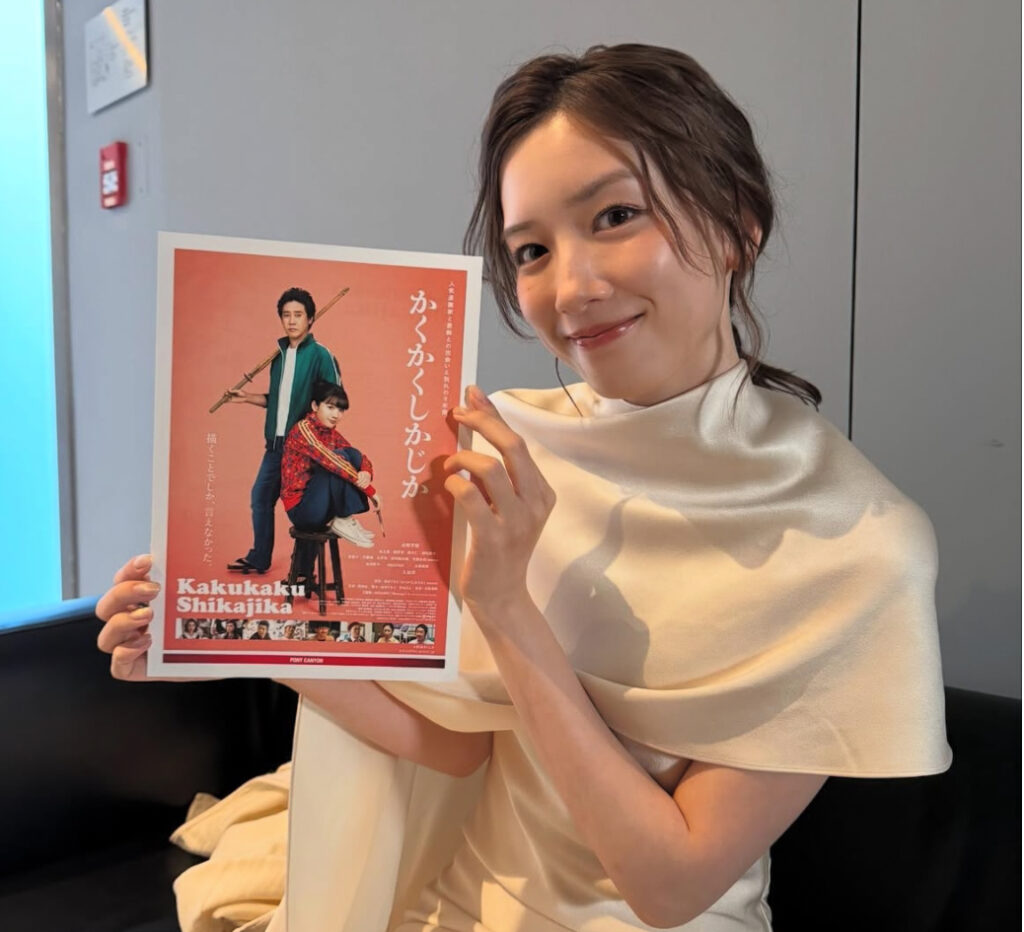
What initially drew you to the role of Akiko Hayashi, and what was your reaction when you learned the story was based on Akiko Higashimura’s real-life experiences?
This was my second time working with the team behind this film. We had remained in contact after our previous project, and during that time, I heard about Kakukaku Shikajika and was offered the opportunity to take part. Because it is an autobiographical work by Ms. Akiko Higashimura sensei, I felt an even greater sense of pressure and responsibility than usual, as I knew that my portrayal must not distort or alter the essence of her story.
Did you read the original manga before accepting the role? If so, how did it influence your understanding of Akiko as a character?
Yes, I did. I shaped Akiko Hayashi’s character by closely observing the expressions in each panel and the overall atmosphere conveyed through the pages. While the manga itself provided valuable insight, what truly deepened my understanding of the character was the opportunity to speak directly with Ms. Akiko Higashimura sensei.
How was your experience working alongside Yo Oizumi?
This was my second time working with Mr. Oizumi, and as expected, the atmosphere on set was bright and enjoyable every day. Watching him instantly transform into Mr. Hidaka sensei the moment he stepped in front of the camera, and seeing him use his downtime to speak with Ms. Akiko Higashimura sensei about the character, I was deeply inspired by the way he approaches his roles with such seriousness and commitment as a senior actor.
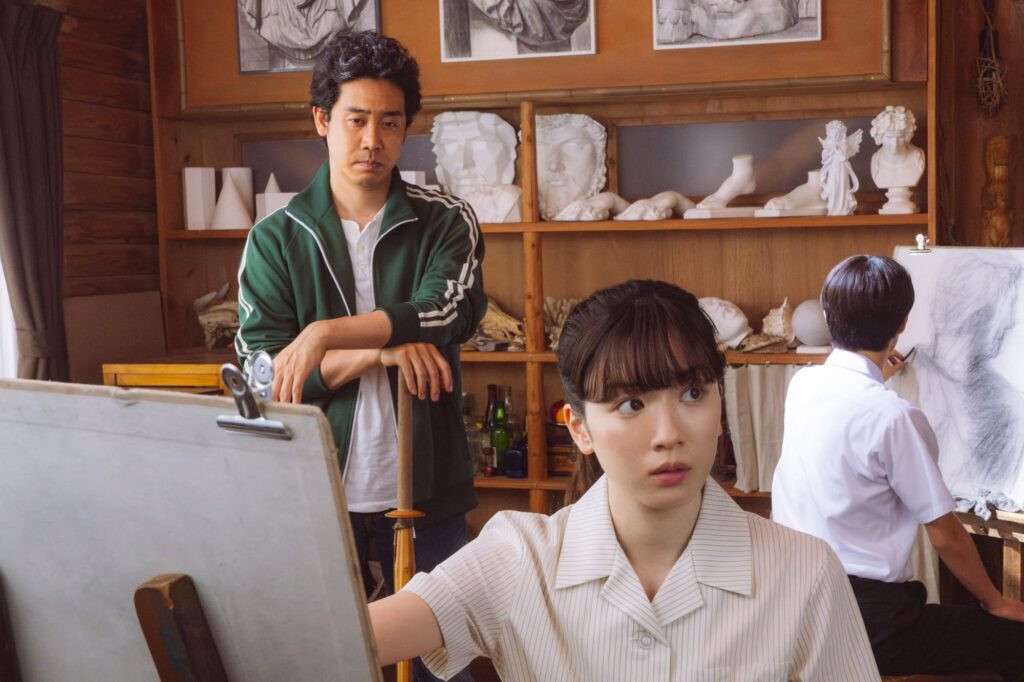
©2025 FUJI TELEVISION NETWORK,INC./ Warner Bros./ S・D・P/ HIGASHIMURA PRODUCTION All rights reserved
Which scene did you find the most challenging to film?
Rather than a specific scene, I found the dialect to be the most difficult. The Miyazaki dialect is distinct from Kansai or Hakata dialects. There were times when I thought I had grasped the rhythm, only to stumble, or when what I thought sounded natural ended up coming across differently through the microphone. Until the very end, I continued learning from both the dialect coach and Akiko Higashimura sensei herself.
Was there a particular scene in the movie that stood out as your favorite?
There are many, but I’m particularly fond of the sequence from the moment Akiko first meets Mr. Hidaka sensei at the bus stop to when they arrive at the classroom. Since it marks the beginning of their relationship, it left a lasting impression on me as well.
One of the core questions the film asks is: “What does it really mean to be an artist?” After stepping into Akiko’s shoes, how would you answer that question now?
That’s a difficult question. (laughs) I think it involves a strong and unwavering desire to remain an artist, as well as the ability to accept solitude and transform it into something meaningful. But I must admit, I still don’t have a clear answer myself. I imagine I’ll continue searching for it as I move through life.
What lessons did you learn from Akiko’s resilience and creative growth that you’ve been able to apply in your own life, beyond the screen?
I learned a great deal. There are moments when we all feel emotionally vulnerable, but I came to realize that those are the times when we must hold firmly to the strength to believe in ourselves.
What’s next for you?
Stage work. I’ve never experienced theater before, and I’d like to take on that challenge while I’m still in my twenties.
[Author’s Note: ありがとう Nagano-san!News Anchorを見るのが待ちきれない]


